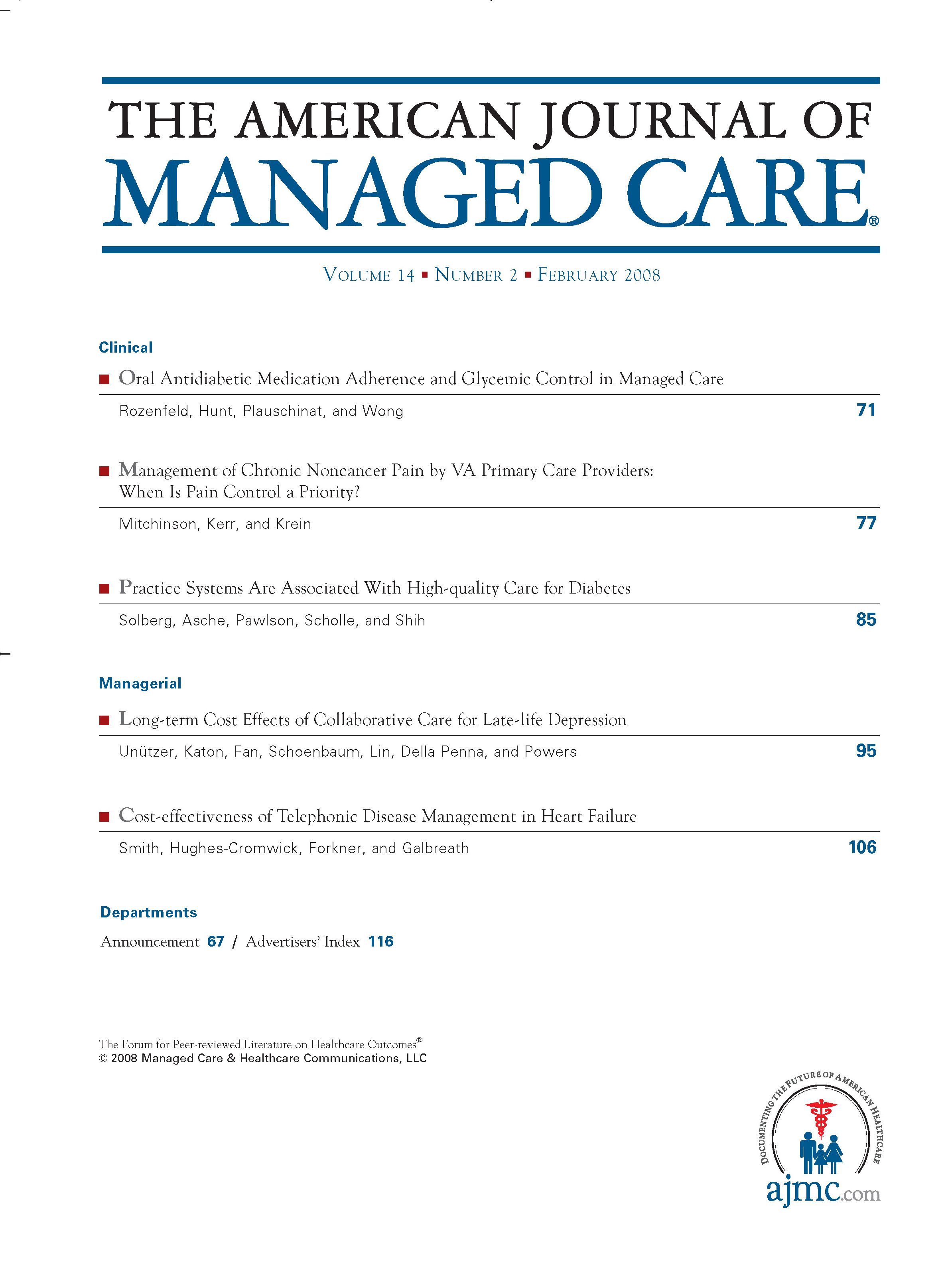- Center on Health Equity & Access
- Clinical
- Health Care Cost
- Health Care Delivery
- Insurance
- Policy
- Technology
- Value-Based Care
Strand V, Singh JA. (Am J Manag Care. 2007;[suppl 9]:S237-S251.
After the publication of our December 2007 supplement, “Health-related Quality of Life in Rheumatoid Arthritis,” the Editors learned that several authors were not given the opportunity to review the final proofs of their manuscripts. As a result, the following errors were subsequently identified. First, the co-author’s name was inadvertently omitted from the Introduction. The correct byline for the Introduction should read: Daniel E. Furst, MD, and Dinesh Khanna, MD.
Second, in the article “Generic Quality-of-life Assessment in Rheumatoid Arthritis,” by Tugwell, et al (Am J Manag Care. 2007;13[suppl 9]:S224-S236), some of the indicators for Health Dimension and Psychometric Properties were missing from Table 1; some data in Table 3 were incorrect; and the reference numbers in Figures 1a and 1b were misnumbered. The corrected tables and figures appear on the following pages (see pages 235-238).
Finally, due to the extent of the errors in the article by Strand et al, “Improved Health-related Quality of Life With Effective Disease-modifying Antirheumatic Drugs: Evidence From Randomized Controlled Trials,” we are reprinting a corrected version of this article in this issue (see pages 239-253).

Specialty and Operator Status Influence Electronic Health Record Use Variation
January 22nd 2026Operators demonstrated specialty-specific differences in electronic health record efficiency, timeliness, and after-hours use, highlighting how workflow and training shape documentation behaviors across medical disciplines.
Read More
Empowering Children and Parents Through Technology: Opportunities, Challenges, and Future Directions
January 15th 2026Digital health platforms improve pediatric care by offering customized, interactive tools for children and parents. They enhance education, support, and engagement while tackling challenges related to access, usability, and privacy.
Read More
Insights Into Patient Portal Engagement Leveraging Observational Electronic Health Data
January 12th 2026This analysis of more than 250,000 adults at least 50 years old with chronic conditions showed lower portal use among older, non–English-speaking, and Black patients, underscoring digital health equity gaps.
Read More
Subjective and Objective Impacts of Ambulatory AI Scribes
January 8th 2026Although the vast majority of physicians using an artificial intelligence (AI) scribe perceived a reduction in documentation time, those with the most actual time savings had higher relative baseline levels of documentation time.
Read More
Telehealth Intervention by Pharmacists Collaboratively Enhances Hypertension Management and Outcomes
January 7th 2026Patient interaction and enhanced support with clinical pharmacists significantly improved pass rates for a measure of controlling blood pressure compared with usual care.
Read More

